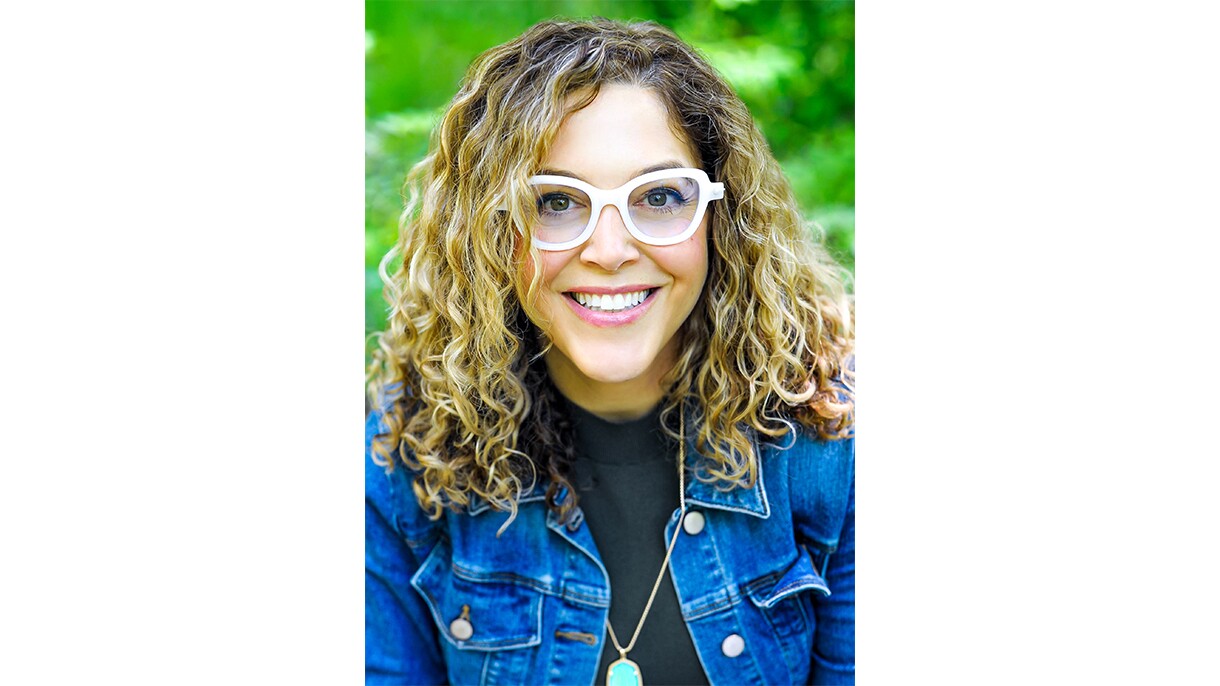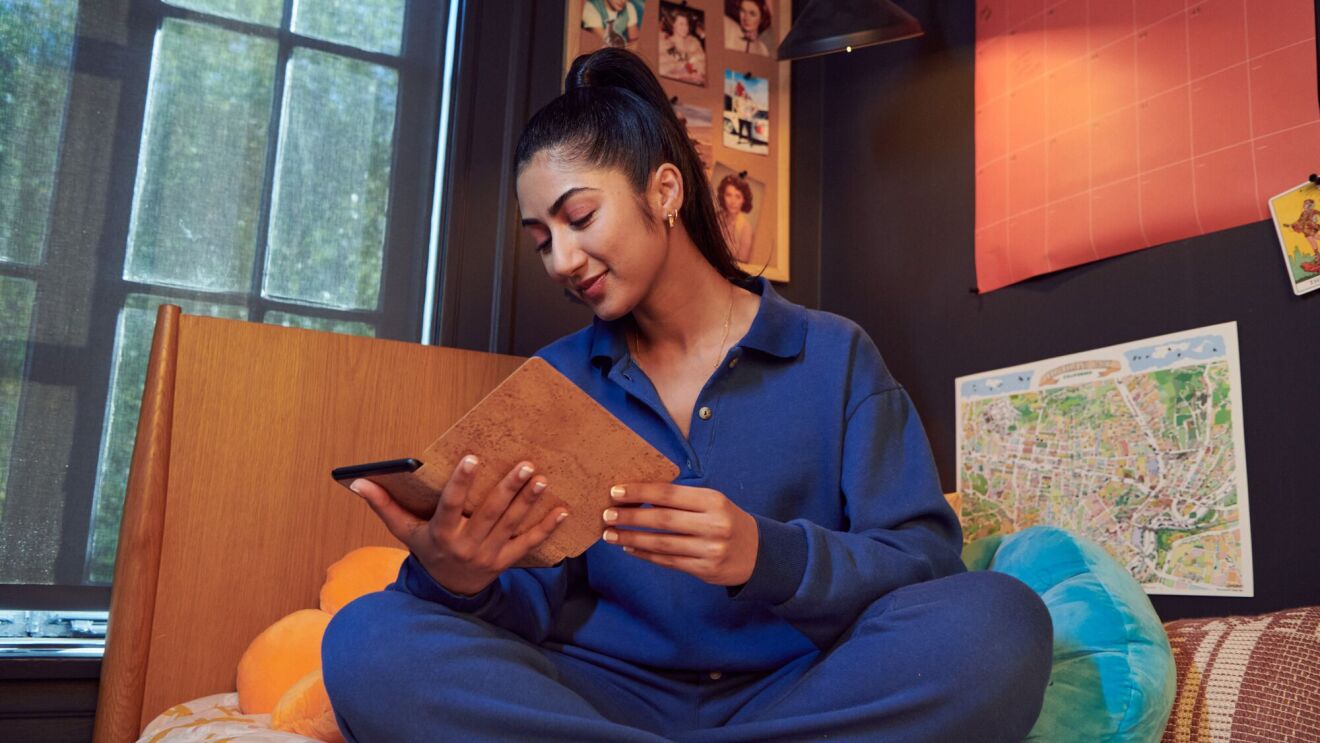The Alexa Fund’s mission is to invest in companies that drive innovations in voice, artificial intelligence, and ambient computing that positively impact customers’ lives. We believe that a great place to start is an education in science, technology, engineering, and math (STEM) and a passion for reading. To that end, we want to help parents ignite a passion for well-rounded learning in their kids and students. The Alexa Fund, with its wide portfolio of startups in fields from robotics to gaming to health to—you guessed it—education, invests in and supports founders and innovators who are bridging the gaps between every part of a comprehensive education, and between learning and fun.
Unruly Studios co-founder Bryanne Leeming and Zoobean co-founder Jordan Lloyd Bookey bring different backgrounds and approaches to education. Lloyd Bookey and her company help libraries and schools use technology and data to inspire their students and young patrons to read. Leeming uses a play-based curriculum to bring a foundational STEM education—covering a range of subjects—to kids in classrooms of all shapes and sizes. Despite their distinctive methods, both are using computing and technology to make a well-rounded education accessible to children everywhere.
Unruly Studios, Bryanne Leeming
Leeming learned to code by playing games. Now she’s helping students across the U.S. and Canada to do the same through Unruly Studios.
 Bryanne Leeming, Unruly Studios co-founder
Bryanne Leeming, Unruly Studios co-founderUnruly Splats, Leeming’s brainchild, is a cross-curricular program that brings STEM to classrooms through play. Teachers and students use tablets to drag and drop code that sets rules for Unruly Splats— the durable floor buttons for which the program is named—to light up or make different sounds. Students, mostly in elementary schools, then stomp on them in a variety of games like whack-a-mole, relay races, or dance experiences.
“Ultimately, they’re building games together with friends,” Leeming said.
And Unruly Splats does seem like it’s all fun and games. In large part, at least for students, that’s because it is. But Unruly Splats is also a product of Leeming’s reflections that the way most students are introduced to coding is “often a very similar experience that attracts the same kinds of kids.” That reflection is widely validated by the largely homogenous makeup of the tech industry. Leeming, a lifelong athlete with a degree in cognitive science, thought she could tap into kids’ penchant for play as a way to make STEM more appealing to a wider range of students.
01 / 02
“Connecting it to things that are creative, connecting it to sports, these things invite a whole new range of kids into computer science,” Leeming said. Because the STEM aspect of the Unruly Splats program is nearly invisible, teachers in a range of subjects from physical education to language arts to math have employed the program to tremendous success. That’s intentional.
“We built this adaptable program and teachers take it even further into their subject areas,” Leeming said. “[I’m] always so inspired by what our teacher community comes up with.”
The Unruly Studios team, which runs the Unruly Splats program, has been particularly surprised by the use cases in music. Leeming references a music teacher in Florida who wasn’t able to use instruments in her classroom because of the pandemic, so she began using Unruly Splats instead. The music teacher assigned a specific music note to each Splat, Leeming said. Each student had their own Splat, and despite being spread out, they were able to play a song together.
While coding and STEM are fundamental to the Unruly Splats curriculum, Leeming doesn’t see creating future programmers as the goal of the program. Her own exposure to coding in elementary school empowered her to use technology with a purpose. It’s her aim that Unruly Splats does the same for students everywhere.
“We think computer science should just be a part of the day. Tech is everywhere, and we really want kids to be able to relate to it in all these different contexts,” Leeming said. “We feel like if you get this exposure, you’ll feel like you can see yourself there. You’ll feel invited, you’ll feel like technology is approachable. Then it’s going to help you no matter what.”
Though their headquarters are in Boston, Leeming and Unruly Studios moved out to Seattle in the summer of 2018 to participate in the three-month Alexa Accelerator, which is now Alexa Next Stage. The program, which connects founders to mentors, and opens up a host of resources within Amazon and beyond, is just one of the many ways Leeming says working with the Alexa Fund has helped her and Unruly Studios. Most notably, the Alexa Fund aided Leeming in building a community among—and relationships with—other founders, including the founders of a book-of-the-month club that has undergone an incredible transition, and now is helping libraries and schools turn students and adults alike into lifelong readers.
That book-of-the-month club is Zoobean.
Zoobean and Beanstack, Jordan Lloyd Bookey
The Zoobean story starts in a place with which many parents are familiar. Soon-to-be co-founders Jordan Lloyd Bookey and her husband Felix were trying to prepare their 2-year-old son to be a big brother. They searched and searched for books that would help him understand what having a baby sister might be like, but, being an interracial and interfaith couple, they struggled to find a book to which their son could relate. Then a librarian friend recommended the book All the World, and as they read it their son lit up, recognizing himself and the little sister he would soon have.
 Jordan Lloyd Bookey, Zoobean co-founder
Jordan Lloyd Bookey, Zoobean co-founderThat joyous moment of recognition ultimately inspired the couple to found Zoobean, the company that now helps schools and libraries bring the wonders of reading to students around the world. Originally launched as a curated book-of-the-month club, Zoobean’s path has taken them from Lloyd Bookey’s home to the stage of the TV show Shark Tank, and the company has continued to evolve—and embrace technology—every step of the way.
“We wanted to recreate that magical feeling for other people,” Lloyd Bookey said. “While that’s where we started, it’s nowhere near where we are now.”
Zoobean’s next iteration was as a reader advisory for public library systems, and eventually, they launched Beanstack, the gamified platform with an interface that makes logging reading time easy and fun, helping schools and libraries create reading challenges that build lifelong readers. Then came the pandemic.
“People who didn’t have an online solution needed an online solution, and it meant that we had extreme growth in a really short period of time,” Lloyd Bookey said. As the chief client-success officer, she ensured that Zoobean’s clients were getting the most of the program, and Zoobean’s rapid growth necessitated some changes for her team.
“It meant we had to revisit our processes,” she said. “As a client-success team and as a company we grew up a lot during that time, because before, we could work personally with a lot of clients. We still do work as personally as possible, but we had to scale.”
And scale they have. Lloyd Bookey and her team have implemented resources, how-to guides, and community platforms to help schools and libraries from Sacramento to Auckland integrate with Beanstack. They even have a webinar program for clients to share best practices among an expanding community of readers. As her company has grown, the Alexa Fund has been there right alongside Lloyd Bookey and the team that she calls her family, as well as her literal family. She said the Alexa Fund has helped with everything from connecting Zoobean to internal resources, to helping with decision-making.
“We view Alexa [Fund] as a trusted advisor,” Lloyd Bookey said. “Children are more likely to eat apples if they are sliced for them. So, we always say, ‘Slice the apple.’ Like Alexa, our goal is to make it easier for people to do things.”
Zoobean has sliced the apple for readers in a lot of different ways over the years, and it continues to innovate with timely, curated reading challenges, an engaging app, and a new initiative to launch its own reading content. The goal remains the same: to bring the joy of reading to people everywhere.
“Having this love and desire to read from a young age means that you’re going to be a lifelong reader,” Lloyd Bookey said. “It means that you’re going to have more opportunities, better test scores, and other sorts of things later in life as well. That’s definitely what keeps us motivated.”
Trending news and stories
- Amazon unveils 7 new robots powering faster, safer deliveries: Go inside our most innovative delivery station yet
- Introducing Vulcan: Amazon's first robot with a sense of touch
- This new AI tech will make sorting packages easier for Amazon's delivery station employees
- 15 photos from Project Kuiper's first launch of low Earth orbit satellites












